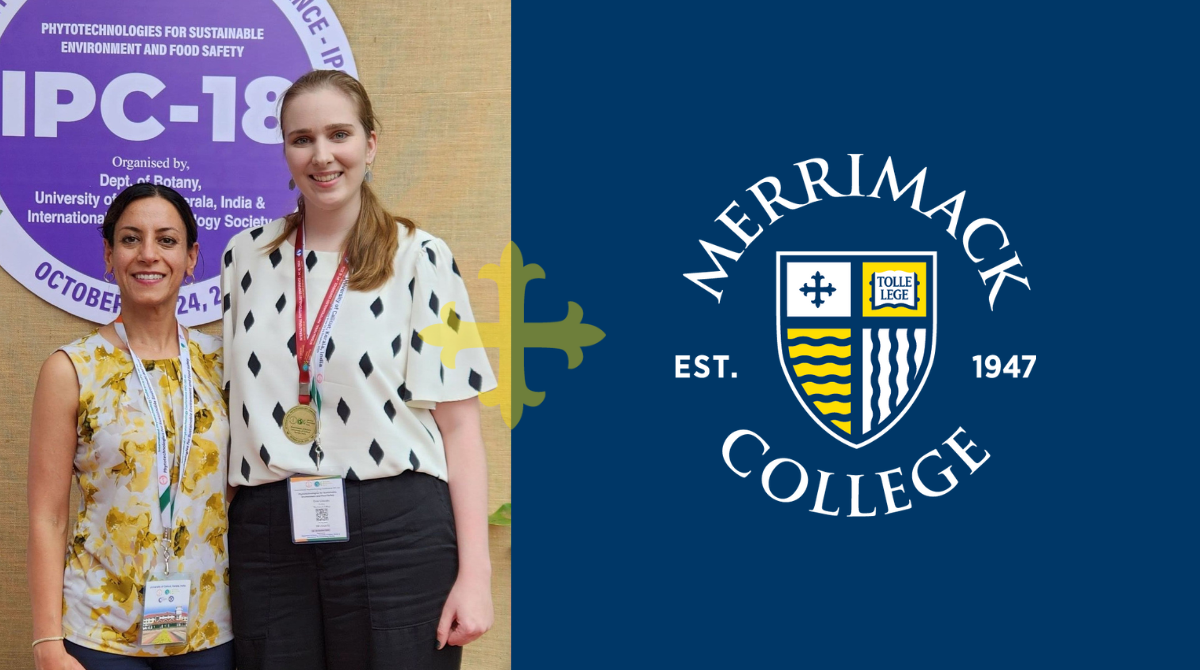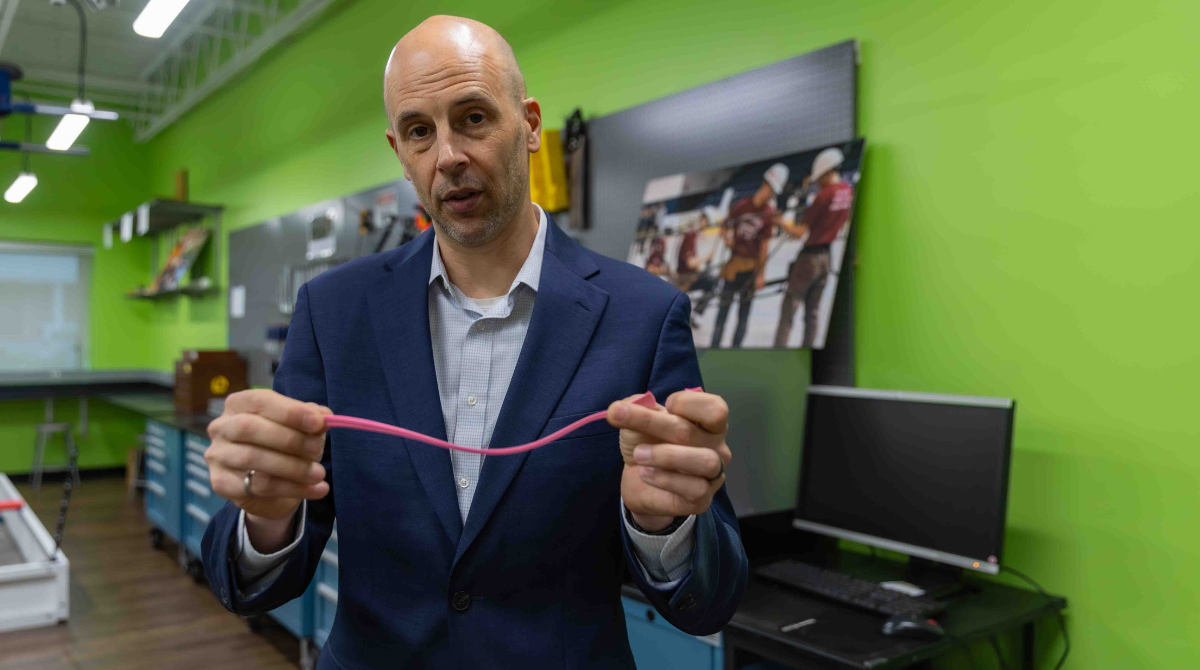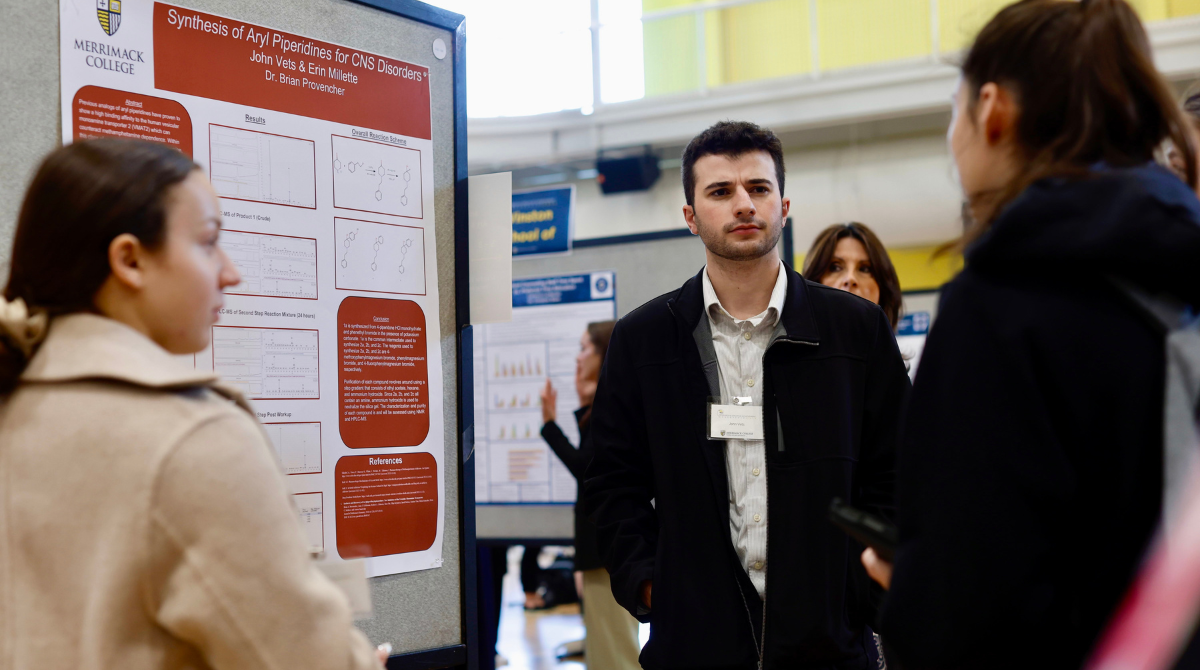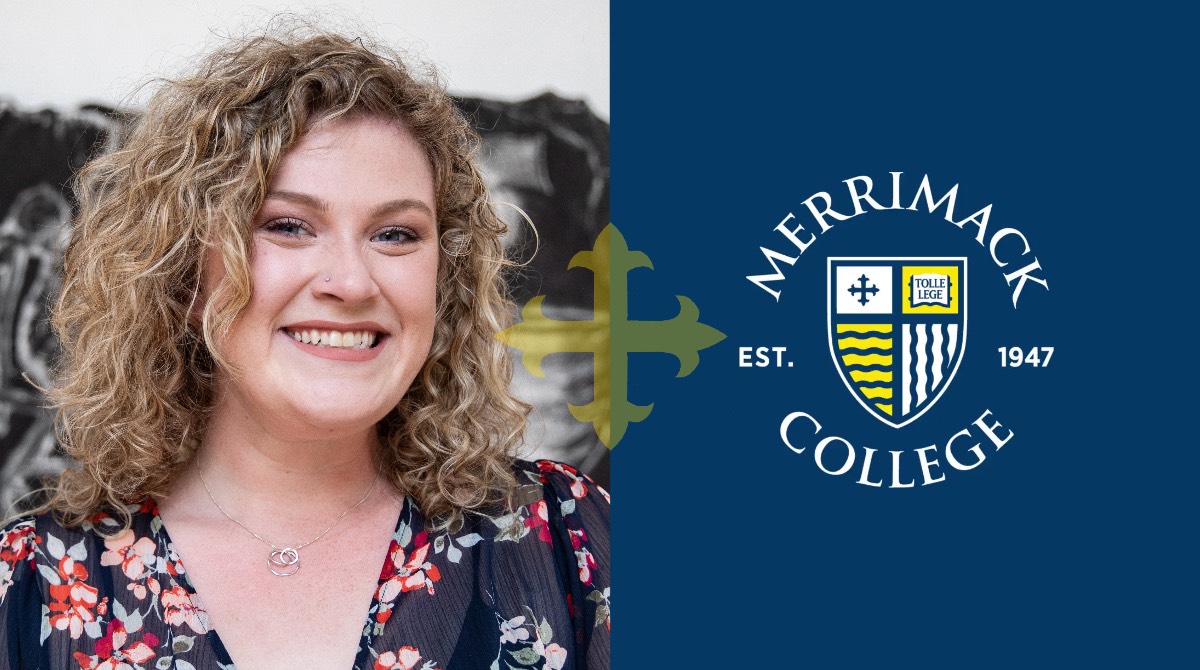When Laurence M. Demers Professor in Life Sciences Dr. Azam Noori invited Erin Lincoln ’24 M’25 to attend the International Phytotechnology Conference at the University of Calicut in Kerala, India, Lincoln said she was stunned.
“This was my first time traveling internationally,” Lincoln said three weeks after returning to the U.S.
As part of the conference, the applied chemistry master’s student was tasked with giving an oral presentation on her work with Dr. Noori to hundreds of attendees from around the world.
“This was the first time I’ve ever done something on this scale,” she said. “I didn’t know if I had the skills to do the oral presentation. Dr. Noori said, ‘Yes, you definitely do.’ She’s pushed me further than I ever thought I could go.”
Turns out, Dr. Noor was right. Lincoln took home third place in the conference’s student presentation competition.
“It was really surprising but really exciting,” she said. “It’s great to have that reward for the work I’ve put in for the past year.”
Since Lincoln was a senior biology undergraduate student, she has assisted Dr. Noori with her research on the impact of silver nanoparticles in tomato plants. The research received a $400,000 grant from the National Science Foundation last year.
“(Silver nanoparticles) have some properties that make them useful in a wide range of products,” Lincoln explained. “You can find them in toothbrushes, laundry detergent and different fertilizers. They’re produced very widely, but when they’re out in the environment they might have some negative effects.”
The research Lincoln presented dealt with elemental analysis, or tracing where the silver particles travel in the plant and how they impact different essential elements needed for growth.
“(Data analyzing) wasn’t a skill I had before working with Dr. Noori,” she said. “But she is a really great mentor and I found proficiency in those skills that I didn’t know I had. It’s been an absolute pleasure working with her.”
Lincoln said she received great feedback and ideas for further examination from other researchers at the conference.
“It was really amazing to interact with scientists from all over the globe and to see such a wide range of research and cultural perspectives,” she continued. “Events like this are really valuable for our research.”
While working with Dr. Noori, Lincoln said she found a passion for research and academia. For her teaching fellowship, she is instructing two biology lab sections.
“I’ve really been enjoying it,” she said. “I can see myself continuing in academia after my Ph.D. and ending up as a professor, but I’m keeping my options open.”




